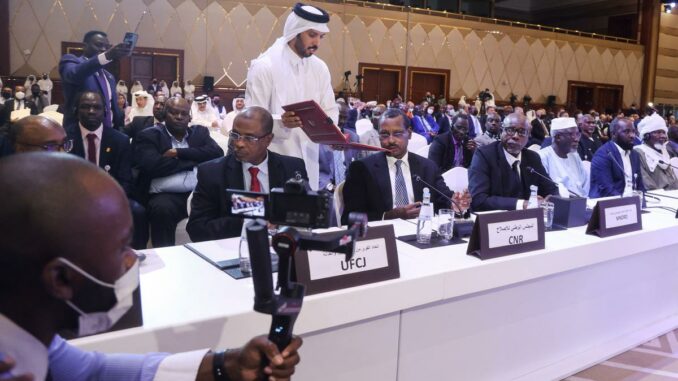
It took five months, but it is now a done deal: Chadian transitional president Mahamat Idriss Déby and several rebel groups have finally reached an agreement. The text was signed on Monday, August 8 in Doha, and should allow the participation of political-military in the inclusive national dialogue of August 20. The international community welcomed this text, “a key moment for the Chadian people”, according to UN Secretary General Antonio Guterres.
The head of the junta in Chad, Mahamat Idriss Déby Itno, signed the agreement with some forty rebel factions on the opening of a national dialogue for peace on August 20 in N’Djamena. However, two of the main rebel movements refused to participate.
The agreement first provides for a general ceasefire upon signature. It commits the rebel camp and the Transitional Military Council to take no military action against each other. The parties must also implement a DDR program, for “Disarmament, Demobilization and Reintegration”.
An amnesty law for convicted rebels is also foreseen, and the security of armed group members and their relatives is guaranteed by the Chadian authorities. In return, the politico-military groups must definitively renounce armed struggle and violent action. They undertake to cease all recruitment of new fighters and to declare their numbers and weapons. Each party promises to release prisoners captured in the various clashes.
Finally, the agreement provides for a national dialogue, which will focus in particular on the reform of the army and the revision of the transitional charter, as well as the non-participation of members of the transition in the next elections.
